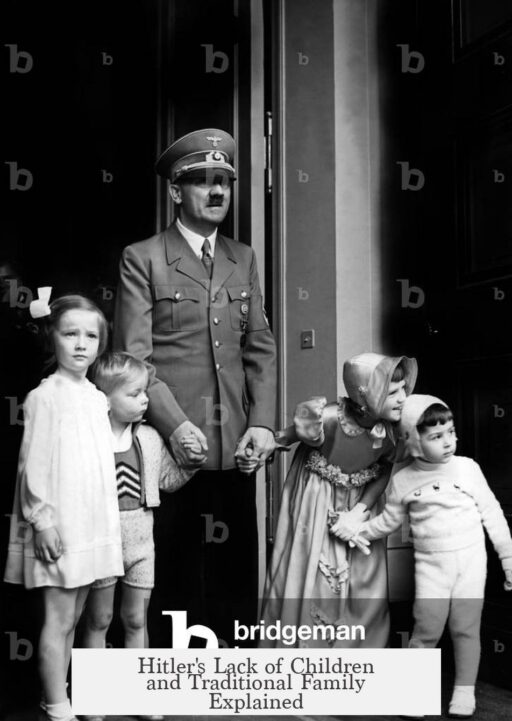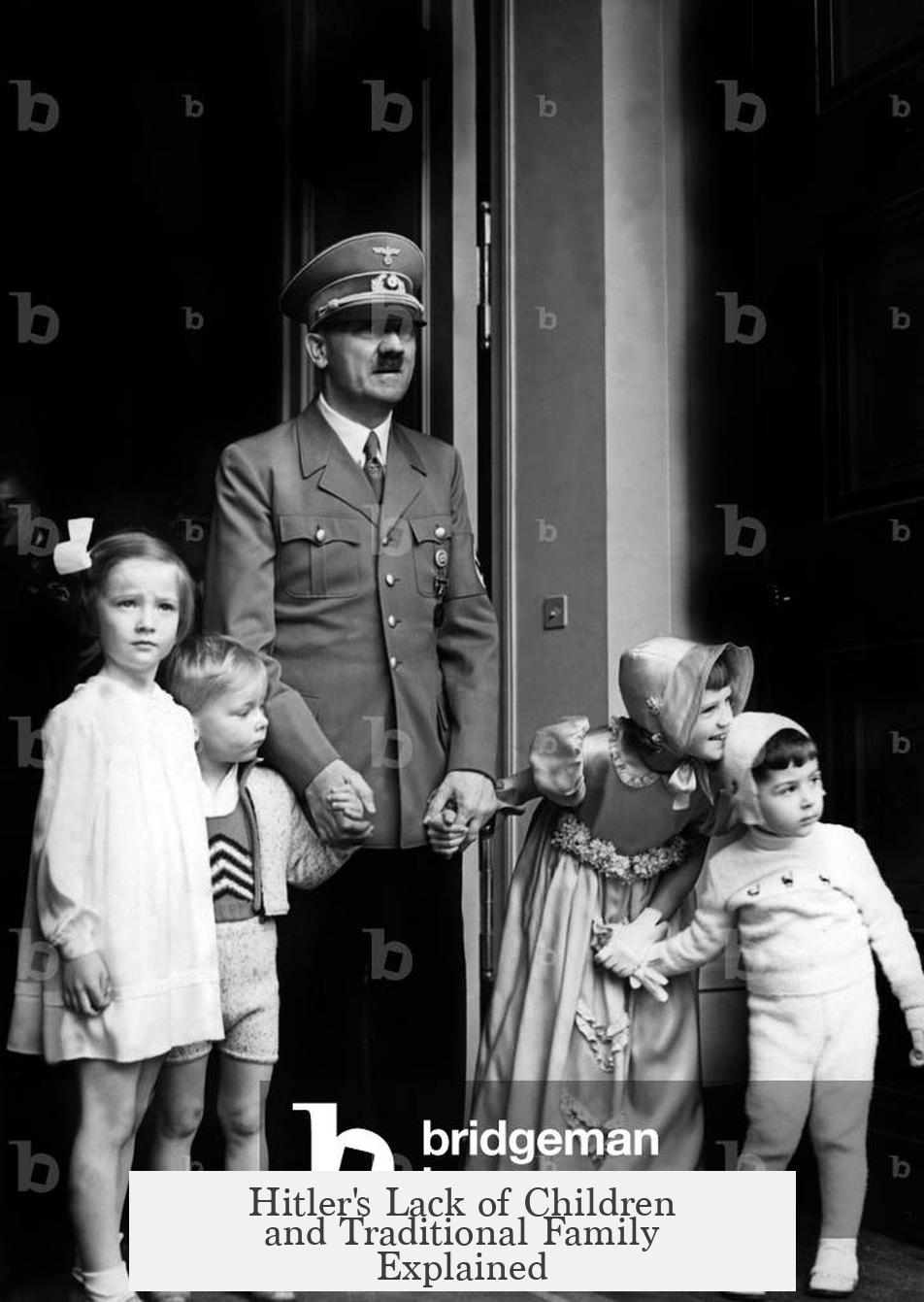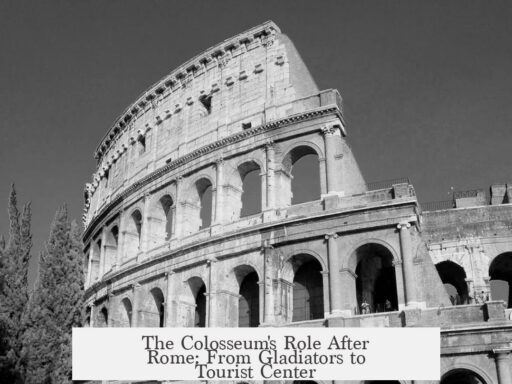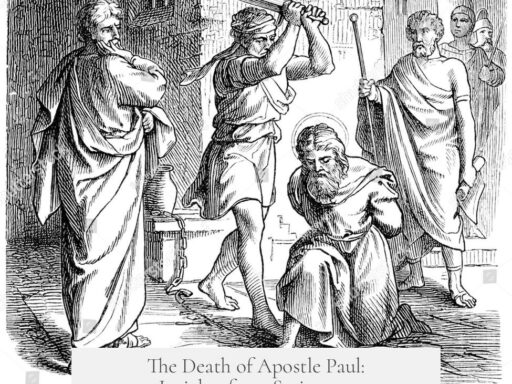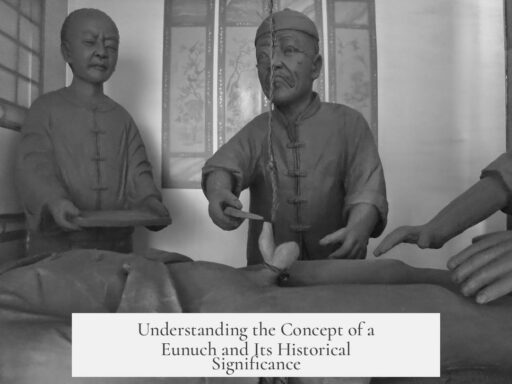Adolf Hitler did not have any children or a traditional family primarily due to his personal personality traits, his approach to relationships, and the political image he cultivated. Despite some claims of an illegitimate child, there is no credible evidence that Hitler fathered any children. His relationships with women were marked more by power dynamics and control than by affection or family-building. Additionally, Hitler deliberately maintained a public image of celibacy to emphasize his total dedication to Germany, which discouraged any traditional family life.
One controversial claim involves Jean-Marie Loret, who asserted that Hitler was his father. This claim surfaced decades after Hitler’s death and received some support from historian Werner Maser. However, it lacks credible evidence and is widely dismissed by reputable historians. Ernest Kershaw, a respected authority on Hitler, labels it “extremely unlikely.” The claim mainly depends on coincidental geographic proximity during World War I and remains speculative at best.
Hitler’s personality shaped his relationships with women profoundly. Accounts often describe him as socially awkward and misogynistic. He preferred young, impressionable women whom he could dominate and control. His approach to women was less about emotional connection or sexual satisfaction and more about exercising power over them. This dynamic explains why his relationships lacked the warmth and stability typical of traditional families.
Eva Braun, Hitler’s longtime companion, illustrates this pattern. To Hitler, she was an attractive but superficial figure who provided relaxation rather than intimate partnership. He never showed any deep emotional or romantic interest in her as a person. Their relationship remained private and hidden from the German public, reinforcing Hitler’s image as a dedicated leader beyond personal distractions. Braun’s identity was a near state secret, known only within Hitler’s closest inner circle during his rise to power.
The power dynamic in Hitler’s relationships is also evident in his interactions with other women, such as his niece Geli Raubal and Maria Reiter. Both were significantly younger and their relationships surrounded by mystery and unverified rumors. Geli’s apparent suicide at age 23 contributed to speculation about the nature of their relationship, but concrete facts remain elusive. His attraction focused largely on domination rather than emotional or parental commitment.
Hitler’s lack of interest in domesticity and traditional family life aligns with his broader priorities. He enjoyed the initial pursuit in relationships but lost enthusiasm once the power dynamic faded. Romantic relationships served more as a stage for control than for building partnership or family. This approach reflects a broader pattern of detachment and avoidance of normal familial roles.
Politically, Hitler’s single status became a deliberate part of his public image. From the 1930s onwards, he portrayed himself as a man who had renounced personal happiness to devote himself fully to Germany’s destiny. This cultivated an image of self-sacrifice, discipline, and singular focus, appealing to many Germans, especially women. Hitler’s unmarried status was even spun as a kind of attraction to female voters, who imagined themselves close to a leader who was “dedicated” above all else.
The strategic secrecy around Eva Braun and lack of open acknowledgment of any family served to bolster this image. It reinforced the narrative that Hitler’s only “marriage” was to Germany itself, and he expected the same sense of devotion from his followers. This political mechanism discouraged any traditional family formation, as it conflicted with the cult of personality built around him.
- Hitler did not have children due to a combination of personal characteristics and political strategy.
- Claims of an illegitimate child lack credible evidence and are dismissed by historians.
- His relationships were dominated by control and power, not emotional connection or family-building.
- Eva Braun remained a private figure, preserving Hitler’s image as a single man devoted to Germany.
- The image of celibacy and sacrifice enhanced Hitler’s political appeal, especially to female supporters.
Why did Hitler choose not to have children or a traditional family?
Hitler saw personal relationships mainly as power plays. He was more interested in control than emotional bonds. Traditional family life did not fit his image or his lifestyle. He preferred relationships with younger women he could dominate.
Was there any truth to claims that Hitler had illegitimate children?
There is a claim about Jean-Marie Loret, but most historians dismiss it as unlikely. The evidence is weak and mostly based on coincidence. The claim is not accepted by mainstream scholars.
How did Hitler’s relationship with Eva Braun reflect his views on family?
Hitler’s relationship with Eva Braun was private and distant. He did not show deep affection or traditional partnership traits. To him, she was a relaxed companion, not a partner for family life or children.
Did Hitler use his unmarried status for political advantage?
Yes. Being single was part of his public image. It showed his total dedication to Germany, not to personal happiness. This helped him appeal to female voters who could imagine themselves as close to him.
What role did Hitler’s personality play in his lack of a traditional family?
Hitler was awkward, controlling, and misogynistic. He preferred women whom he could easily dominate. His lack of interest in domestic life and marriage was linked to his preference for power over emotional connection.
